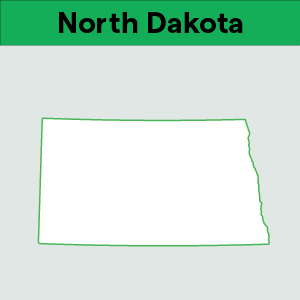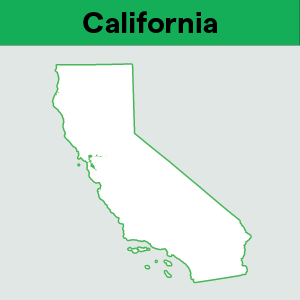Puerto Rico’s marketplace facilitator sales tax law, explained
by December 16, 2024
Puerto Rico’s marketplace facilitator law require online marketplaces like Amazon to collect sales tax on behalf of sellers who sell there. This means that if you sell on a platform like Amazon, these platforms collect sales tax from your Puerto Rico buyers on your behalf, and remit it to the territory.
Even better news, Amazon has been collecting sales tax on behalf of 3rd party sellers selling into Puerto Rico all the way back starting April 1, 2018. But as usual, there are always a few spanners in the works when it comes to e-commerce sales tax.
This post will explain what online sellers need to know about the new Puerto Rico marketplace facilitator law, and answer your frequently asked questions.
Overview of the Puerto Rico marketplace facilitator law
Puerto Rico’s marketplace facilitator law states that marketplace facilitators who meet the territory’s definition of “marketplace facilitator” must collect sales tax on behalf of 3rd party sellers who utilize the marketplace.
Quick facts about the Puerto Rico marketplace facilitator law
-
- Effective date: The law took effect retroactively on January 1, 2020
- Law information: Read the full text of the Puerto Rico Marketplace Facilitator Law
Frequently asked questions about marketplace facilitator laws
What exactly is a marketplace facilitator in Puerto Rico?
Puerto Rico law defines marketplace facilitators as entities that facilitate the sales of tangible personal property, digital property or services by advertising, listing or promoting the sales of marketplace sellers or directly or indirectly collecting payment on behalf of the seller and transmitting it to the seller.
Online sales platforms like Amazon and eBay are considered marketplace facilitators under Puerto Rico law.
A software like BigCommerce or Magento that allows online sellers to build and manage their own stores would not be considered a marketplace facilitator under this law.
Does this mean I can stop collecting Puerto Rico sales tax?
It depends. Every business’s sales tax situation is unique to that business.
Let’s look at a couple of common scenarios for businesses who have sales tax nexus in Puerto Rico.
Example #1: You only make sales on online marketplaces.
In this example, you only sell on Amazon. Because Amazon is now collecting sales tax from buyers on your behalf, you are not required to collect sales tax from your buyers. (However, as a seller with nexus in the territory, you will most likely still be required to file periodic sales tax returns. See “Does this mean I can cancel my Puerto Rico sales tax permit?” below.)
Example #2: You sell on online marketplaces and your own online store and/or brick and mortar store.
In this case, you’d still be required to collect sales tax from buyers who purchase from you through your own online store (for example, via your WooCommerce or Ecwid store). And you would still be required to collect sales tax from your brick and mortar customers.
Marketplace facilitator laws only cover marketplaces. The territory still requires that merchants collect sales tax from buyers via sales channels where the marketplace facilitator laws do not apply.
Does this mean I can cancel my Puerto Rico sales tax permit?
This is unclear. As of this writing, Puerto Rico has not yet issued guidance for marketplace facilitators or sellers. We will update here when Puerto Rico issues more information.
Do I still need to file a Puerto Rico sales tax return?
If you are registered to collect sales tax in Puerto Rico (i.e. you have an active Puerto Rico sales tax permit) then the territory still requires that you file sales tax returns.
If you only make sales via marketplaces, and all of your marketplaces collect sales tax from buyers on your behalf, then you may only be required to file a “zero return.” (This is a return showing that you do not have any sales tax to remit to the territory.)
If you no longer have any sales tax to remit to the territory of Puerto Rico, we recommend checking directly with the Puerto Rico Department of Treasury to determine if you can cancel your sales tax registration.
Be cautious here. If you are registered for a sales tax permit and do not file, the territory can assess penalties even though you don’t have any sales tax to remit! We have, unfortunately, talked to too many sellers who have found this out the hard way when a tax penalty bill arrives.
What do I do with any Puerto Rico sales tax I have already collected?
If you have already collected Puerto Rico sales tax from buyers, it is vital that you remit that amount to the territory. The only way to get in serious criminal trouble in sales tax is to collect sales tax from buyers on the territory’s behalf but keep it in your own pocket.
Example:
Let’s say you sell on Amazon and Puerto Rico requires you to file and remit sales tax quarterly. Let’s say hypothetically that Walmart began collecting sales tax on your behalf on January 1, if you had any sales tax in your bank account that you collected from Q4 2019, you would still need to remit that to the Puerto Rico Department of Treasury or face a penalty.
Does TaxJar handle this for me?
Yes.
TaxJar Reports give you all the info you need to file manually
Your TaxJar Reports also reflect what the Puerto Rico Department of Treasury wants to see on your tax return. TaxJar does not offer the AutoFile service for Puerto Rico at this time. We prioritize TaxJar features based on customer needs, so if you are interested in AutoFile for Puerto Rico, contact us.








